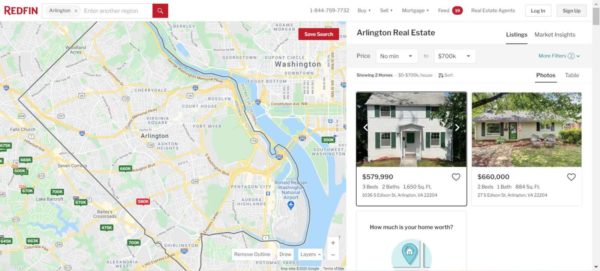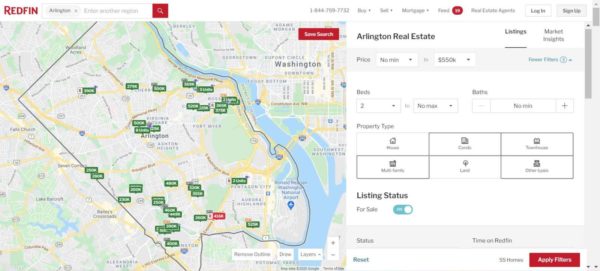 Making Room is a biweekly opinion column. The views expressed are solely the author’s.
Making Room is a biweekly opinion column. The views expressed are solely the author’s.
One recurring argument against upzoning is that Arlington needs single-family zoning to protect affordable starter homes from expensive redevelopment.
Without restricting lots to one unit, the thinking goes, a developer would be willing to pay a substantial sum to demolish small homes and replace them with multiple units, reaping the profit.
But this argument assumes that Arlington has any remaining starter homes left to protect, and that we could keep them from being torn down and rebuilt as McMansions. The reality is that our land value makes any detached home more expensive than a middle-income family can afford, even if they are not redeveloped.
A basic search on Redfin (conducted this past Saturday) yields only two detached homes in Arlington that are less than $700,000. For a family making 120% of the area median income, maybe one of these would be affordable. Older detached homes in Arlington average $1 million, which means they are unaffordable to all but the wealthiest Arlington families.
As expensive as these detached homes are, restrictive zoning can actually subsidize their prices. Rather than keeping starter homes affordable for middle-class families, single-family zoning serves as a barrier to homeownership. It prevents a group of people from pooling their resources to overcome high land costs and share a desirable residential lot.
The best chance for starter homes in Arlington comes from multifamily buildings. My same Redfin search yielded 55 duplexes and condos with 2+ bedrooms available at $550,000 or less (I set a lower price to account for condo fees). These attached housing forms are the bedrock of middle-class ownership opportunities in desirable places like Arlington. We need many more of them. Without an increase, the next generation of Arlington families will be locked out of the housing market, unless they are willing to move further away.
Contrary to some opinions, there is no single route to upzoning. Research by Emily Hamilton shows that zoning for the number of units is only part of the equation. To achieve affordable, small-scale development, we also need to address lot size, building size, and parking requirements.
Recent examples of upzoning throughout the country have taken many different forms. Last year, Minneapolis’s plan to allow triplexes on all residential lots made waves. This summer, Portland approved missing middle zoning that restricts the size of single-family homes to 2,500 square feet — effectively banning McMansions — and allows 4- to 6-unit buildings up to 3,500 square feet.
Arlington has an opportunity to chart its own course toward re-legalizing multi-unit dwellings. If you want to learn more about Arlington’s Missing Middle Study, please join a webinar with the authors of the five Research Compendiums that provide data on Arlington’s housing stock. This event will take place on Wednesday, September 2 from 7-8:30 p.m.
The demand for housing in Arlington has reached the point that single-family zoning functions to prevent opportunities for middle-class homeownership. If you either have a high income or bought your detached home when it was an affordable starter, congratulations! No one is going to take it from you. But when it comes to your neighbor who wants to sell, let’s use the opportunity to create a new generation of starter homes.
Jane Fiegen Green, an Arlington resident since 2015, proudly rents an apartment in Pentagon City with her family. By day, she is the Membership Director for Food and Water Watch, and by night she tries to navigate the Arlington Way. Opinions here are her own.



